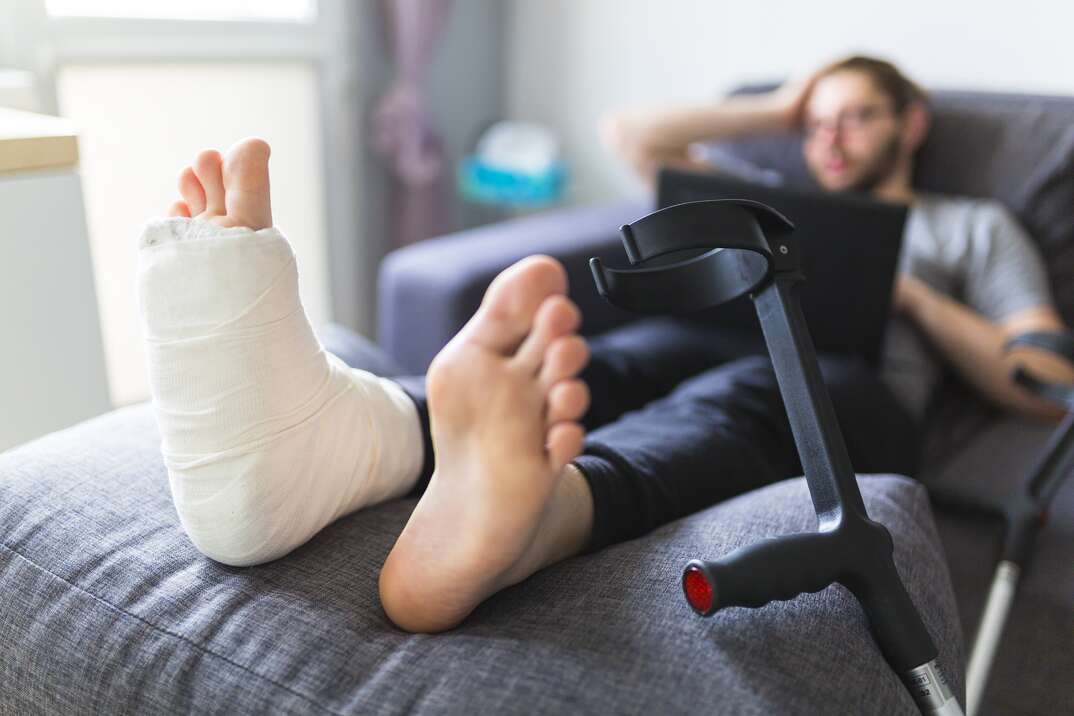- AppliancesElectriciansHVACLandscapingLocksmithPest ControlPlumbingRenovationRoofingT V RepairAll Home Improvement
- Car AccidentClass ActionCorporate LawCriminal DefenseDivorce LawEmployment LawFamily LawFinancial LawLegal AidMedical Injury LawyersMedical MalpracticeReal Estate LawWater Fire RestorationAll Legal
- InvestmentRetirementAll Finance
- Animal InsuranceAutoGeneral InsuranceHealth PolicyHome RentersAll Insurance
- DentalHealth SpecialistsAll Medical
- Animal CareVeterinaryAll Pets
- Auto GlassTowingAll Automotive
What Is the Statute of Limitations for a Personal Injury Claim?

A personal injury case allows you to seek compensation if an injury you receive is due to someone else's negligence. This type of civil lawsuit can help you recover money for things like your medical bills, missed wages and pain and suffering.
However, the statute of limitations requires you to file your lawsuit within a specific period. If you miss the statute of limitations, you're no longer able to take legal action.
The statute of limitations for a personal injury claim can vary based on several factors. A common statute of limitations is two years, but you might have as little as a year or as many as six years to file your personal injury case. It's important to understand the time frame for your situation so you don't miss the chance to pursue legal action. Contacting a lawyer as soon as you're injured helps you determine if you have a case and can help you understand your deadline for filing.
Does the Timeline Vary by State?
The major difference in how long you have to file your personal injury case is where you live. Every state sets its own statute of limitations for personal injuries. On the low end, Louisiana and Tennessee only allow a single year for personal injury claims. Most states allow two or three years to file the case. Florida, Nebraska, Utah and Wyoming have longer statutes of limitations at four years, and Missouri allows five. The longest statute of limitations for personal injury cases is six years in Maine and North Dakota. Your best source of information is a lawyer in your state who understands all the personal injury laws.
More Related Articles:
- When Do You Need a Lawyer? Determine If You Need to Hire an Attorney
- What Is a Class-Action Lawsuit?
- What Is a Misdemeanor?
- What to Do After a Car Accident
- What Is Power of Attorney?
Some states have different statutes of limitations based on the type of personal injury claim you have. For instance, in Colorado, the standard statute of limitations is two years, but the time frame for an auto accident is three years. In Kentucky, the typical limit is one year, but claims for car accidents are allowed for two years.
Medical malpractice cases sometimes have a shorter statute of limitations than other types of personal injury cases. For example, Maine allows six years for personal injury cases but only three for medical malpractice cases. Missouri allows five years normally, but just two years for medical malpractice. Regardless of your case type, taking legal action quickly helps you avoid missing your opportunity for compensation.
When Does the Statute of Limitations for a Personal Injury Case Start?
Your statute of limitations usually starts ticking as soon as the accident or incident happens. From that day, you have however many years your state allows for personal injury cases. If you miss the deadline by even a short amount of time, you can't file the case, so it's important to know the limitations for your state and type of claim.
There are some exceptions, though, particularly if you don't know you're injured when the incident happens. It might sound strange that you wouldn't know you were injured, but not all issues are discovered right away. Medical malpractice, in particular, could result in a later discovery of an injury.
Say a surgeon left something inside your body. The item might not cause issues right away, but you might start having complications down the line. This is referred to as the discovery rule and could result in the statute of limitations starting when you discovered the injury instead of when it happened. You might receive the full statute of limitations after the discovery, or it could be a shorter period.
The statute of limitations can also be longer if the case involves a minor. In some states, a personal injury case can't proceed until the injured party turns 18. The state might extend the statute of limitations for a certain period after the child's 18th birthday. Your attorney can advise you on how to proceed if your minor child was injured and you want to file a personal injury claim.
Elocal Editorial Content is for educational and entertainment purposes only. The information provided on this site is not legal advice, and no attorney-client or confidential relationship is formed by use of the Editorial Content. We are not a law firm or a substitute for an attorney or law firm. We cannot provide advice, explanation, opinion, or recommendation about possible legal rights, remedies, defenses, options or strategies. The opinions, beliefs and viewpoints expressed by the eLocal Editorial Team and other third-party content providers do not necessarily reflect the opinions, beliefs and viewpoints of eLocal or its affiliate companies. Use of the Blog is subject to the
Website Terms and Conditions.The eLocal Editorial Team operates independently of eLocal USA's marketing and sales decisions.



